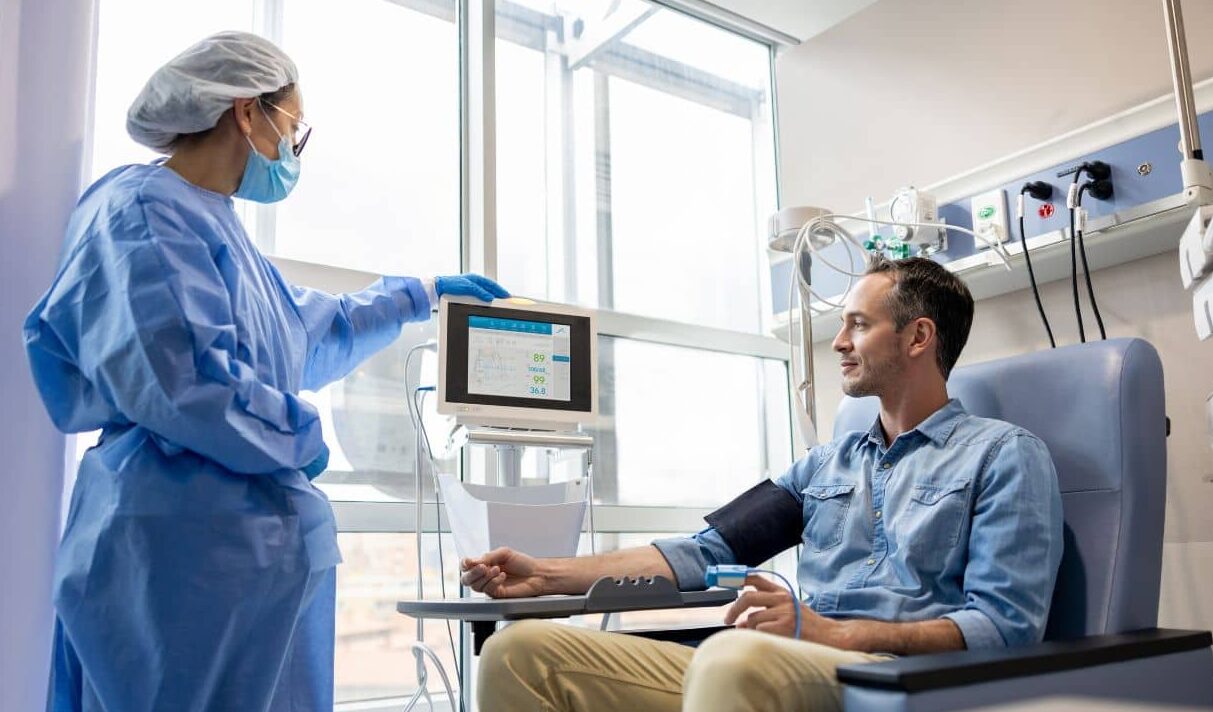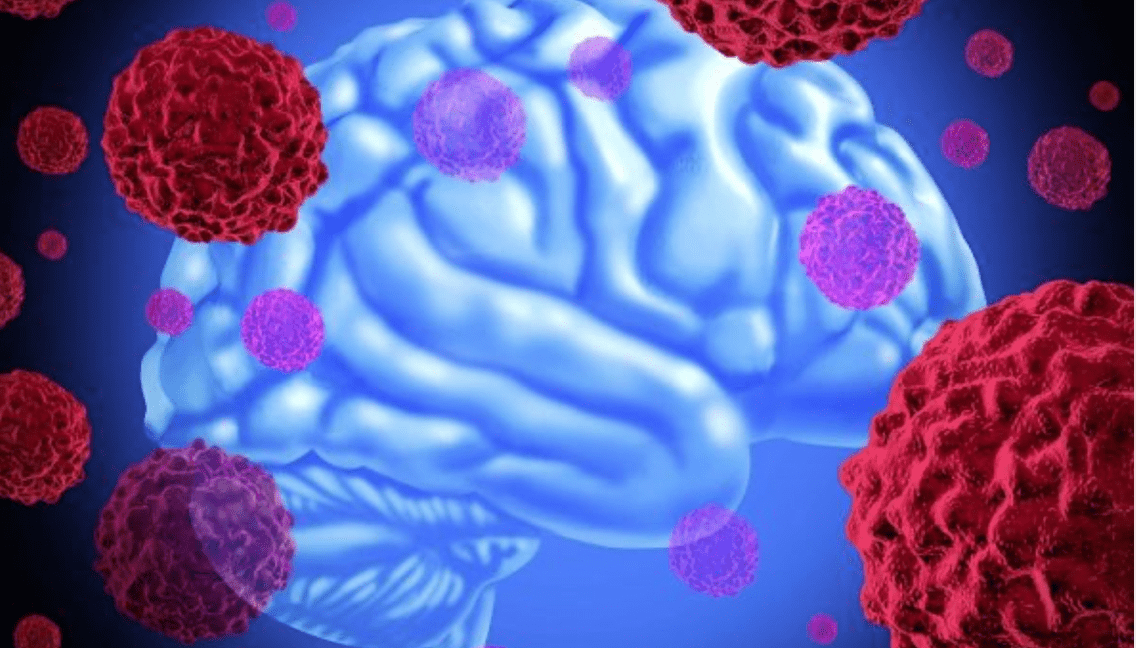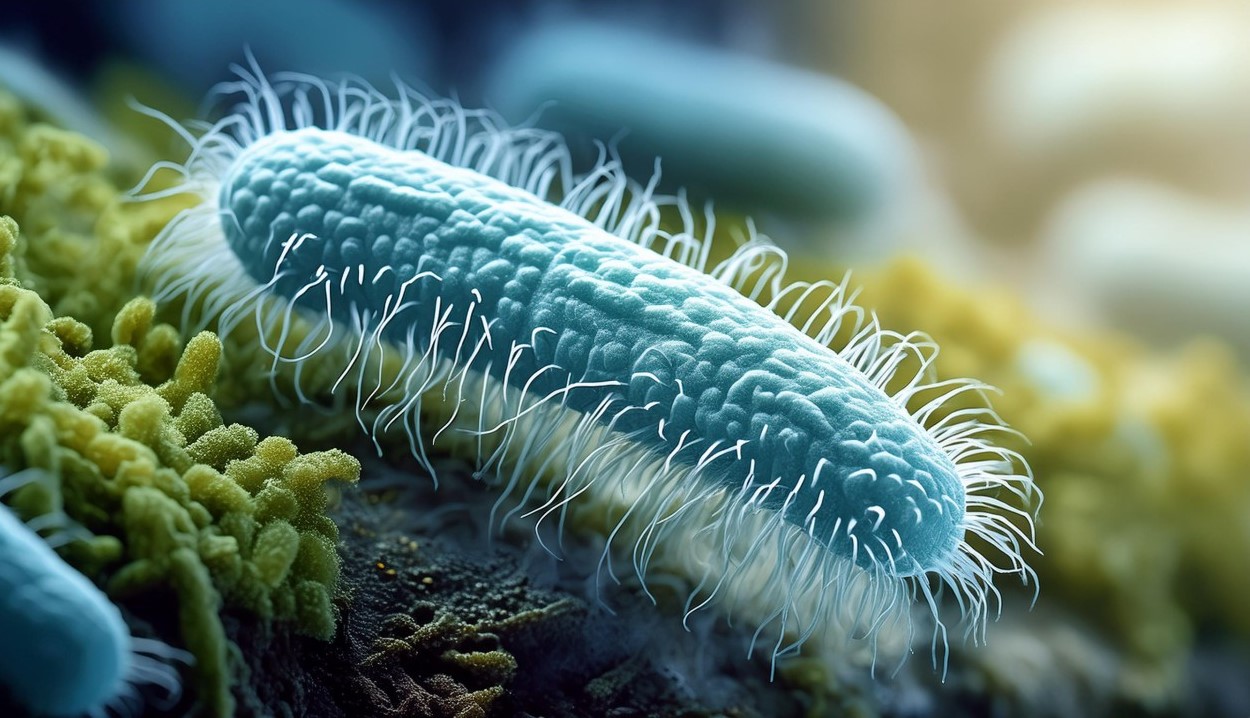-
 News
When glucose levels are low, chemotherapy ceases to affect cancer cells
News
When glucose levels are low, chemotherapy ceases to affect cancer cells
-
 News
Excessive treatment of prostate cancer in older men may reduce quality of life without increasing its duration
News
Excessive treatment of prostate cancer in older men may reduce quality of life without increasing its duration
-
 News
Brain cancer can be cured by viruses
News
Brain cancer can be cured by viruses
-
 News
Ways to reduce lymphatic pain in breast cancer have been found
News
Ways to reduce lymphatic pain in breast cancer have been found
-
 News
Scientists have turned bacteria into a powerful weapon against cancer
News
Scientists have turned bacteria into a powerful weapon against cancer
All news
Thyroid disease treatment
The thyroid gland is the most important organ that regulates all the functions of the body’s metabolic metabolism — respiratory rate, temperature, body weight, menstrual cycle, and so on. This happens with the release of the hormones T3 (triiodothyronine free) and T4 (thyroxine free). The most common diseases of the thyroid gland are divided into those that cause a decrease in the levels of the hormones T3 and T4 (hypothyroidism) and those that, on the contrary, increase them (hyperthyroidism).
Diseases that are accompanied by hypothyroidism:
- Autoimmune thyroiditis;
- Goiter hypothyroidism;
- Hypothyroidism.
Diseases that are accompanied by hyperthyroidism:
- Diffuse toxic goiter (Graves’ disease);
- Multi-node toxic goiter;
- Toxic thyroid adenoma.
In addition to the diseases listed above, common thyroid lesions include thyroid cancer.
MedTour patients recommend clinics for the treatment of thyroid disease:
Doctors for the treatment of thyroid disease
Frequently Asked Questions
- Cold limbs and a constant feeling of cold, or vice versa-hot skin;
- Gratuitous weight loss or gain;
- Mood lability, lethargy or excessive irritability, tearfulness;
- Hair loss;
- Menstrual cycle disorder;
- Exophthalmos (an increase in the volume of the eyeball and its extension beyond the eye socket);
- Edema;
- Change in heart rate;
- Palpable mass on the neck.
Thyrotoxic crisis
This is a serious life-threatening complication, most often occurs with diffuse toxic goiter. The reason for it is the release of a large amount of hormones T3 and T4 into the blood. It is manifested by anxiety, dizziness, vomiting and diarrhea, tachycardia and increased respiratory rate. Against the background of a thyrotoxic crisis, heart failure, coma and death may occur.
Myxedema (mucosal edema)
This is a condition that occurs in extreme forms of hypothyroidism. In this case, there is a violation of protein metabolism, and because of this, edema appears in all tissues and organs. Also observed are
- Anemia;
- Reduced heart rate;
- Hair loss;
- Drowsiness;
- Lethargy and pallor.
The most common complications of thyroid cancer are bleeding and cachexia.
- Accurate diagnosis thanks to strict adherence to protocols and experienced doctors — to assess the functional state of the thyroid gland, you need a large number of hormone tests and dynamic examinations. Therefore, to choose the right treatment, you need to contact a doctor in a specialized world-class center.
- If surgery is necessary, patients prefer clinics where they can provide the best cosmetic effect thanks to the da Vinci robot and minimally invasive techniques.
- Abroad, patients have access to safer radiation techniques that allow them to give a higher dose of radiation therapy, such as proton therapy.
Diagnosis of thyroid diseases
Clinical Practice
Often, thyroid disease can be suspected by more or less characteristic symptoms.
Ultrasound
Ultrasound clearly shows the structure of the thyroid gland, its size, the presence of additional lobes, nodes, formations and blood flow in all areas. This diagnostic method is not final, but with a fairly high accuracy allows you to assume a particular disease.
Laboratory diagnostics
Most often, it is reduced to assessing the functional ability of the thyroid gland with the help of hormones T3 and T4 and TSH(thyroid — stimulating hormone), as well as other hormones that could be affected by thyroid dysfunction-cortisol, prolactin, estrogen, testosterone, insulin, and so on.
Immunological tests
Determination of antibodies to RTG-TSH receptors.
Thyroid scintigraphy
It is used for more accurate assessment of suspicious nodes and areas with increased blood flow.
Biopsy
It is usually taken when thyroid cancer is suspected or in cases where confirmation or clarification of the diagnosis is necessary. It is carried out under the control of ultrasound with a special manipulator, does not require training and hospitalization.
If a malignancy is suspected, CT and/or MRI with intravenous contrast is used
Treatment of thyroid diseases
Treatment depends on what thyroid disease is present in the patient.
Autoimmune thyroiditis (Hashimoto’s thyroiditis)
This is a condition in which your own immune system destroys your thyroid cells. Because of this, there is a deficiency of the hormones T3 and T4. The main method of treatment is hormone replacement therapy, for which it is extremely important to choose the right dosage. Treatment of complications of autoimmune thyroiditis occurs with the help of glucocorticoids (dexamethasone, methylprednisolone). Sometimes, as part of a complex treatment, immunotherapy is used. This disease requires lifelong treatment, as it is chronic.
Diffuse toxic goiter (Graves-Bazedov’s disease)
This is a disease that is accompanied by the production of antibodies to TSH receptors, which increases the level of the hormone itself and causes the phenomenon of thyrotoxicosis. At the same time, patients have increased emotional lability, subfebrile temperature, weight loss with increased appetite, hot skin, an increase in the size of the eyeball (exophthalmos). The specific marker is rTth antibodies. Treatment consists in taking antithroid drugs (tyrazole, mercazolil) or radiocative iodine therapy, in rare cases, surgical intervention is required.
Toxic thyroid adenoma
This is a benign thyroid tumor that itself produces thyroid hormones and causes hyperthyroidism, and also leads to a decrease in the function of the opposite lobe of the thyroid gland. It is well visualized on ultrasound. The methods of treatment of toxic adenoma include radioactive iodine and surgery with the preservation of the opposite lobe. In such cases, a complete cure is possible.
Thyroid cancer
It is about 1% of all oncological diseases.Sometimes
- Medullary;
- Follicular;
- Papillary;
- Anaplastic.
The first 2 types of cancer have a relatively favorable prognosis. Leading foreign doctors treat thyroid cancer with radiation therapy or radioactive iodine therapy and surgery to remove the entire thyroid gland or (in rare cases, in the early stages of half of the thyroid gland) with or without removal of the neck lymph nodes. After removal of the thyroid gland, patients receive hormone replacement therapy for life. Chemotherapy is rarely used. Targeted therapy is used, the main drugs are Cabozantinib, Sorafenib, Vandetanib.
Published:
Updated:


Information on this webpage verified by the medical expert








